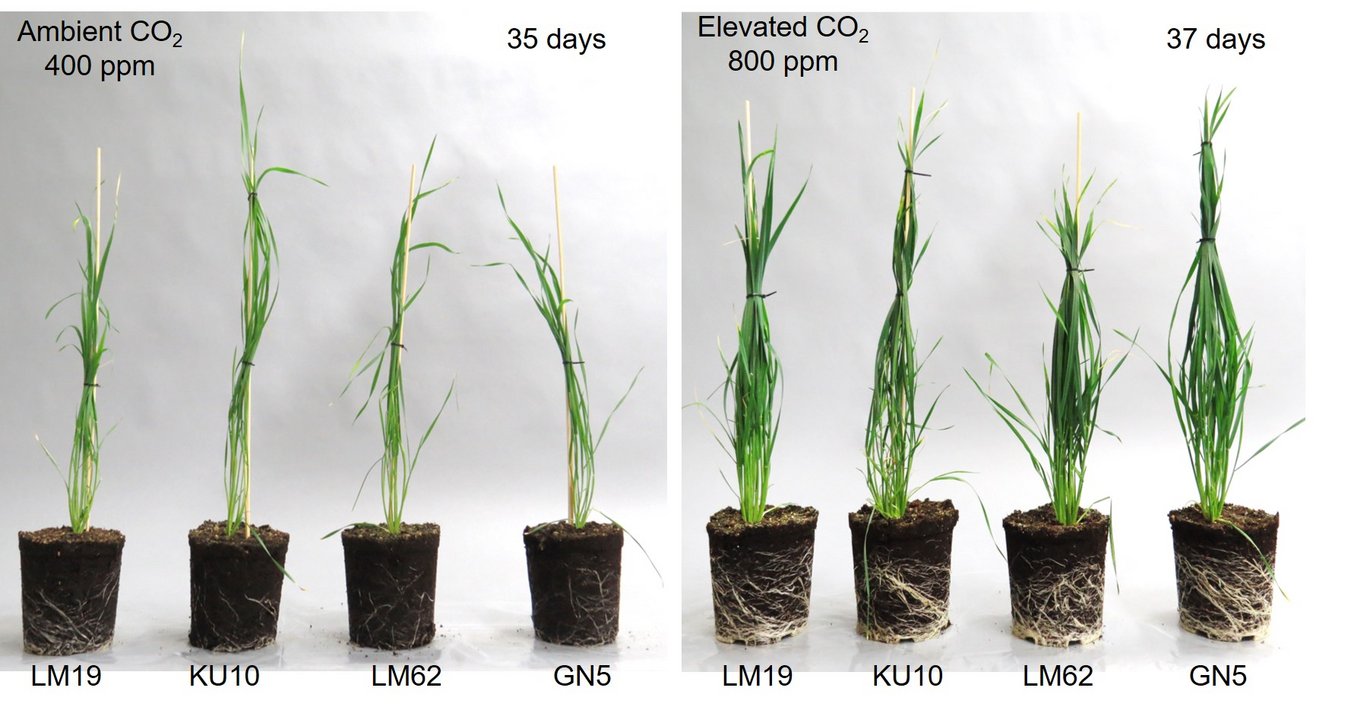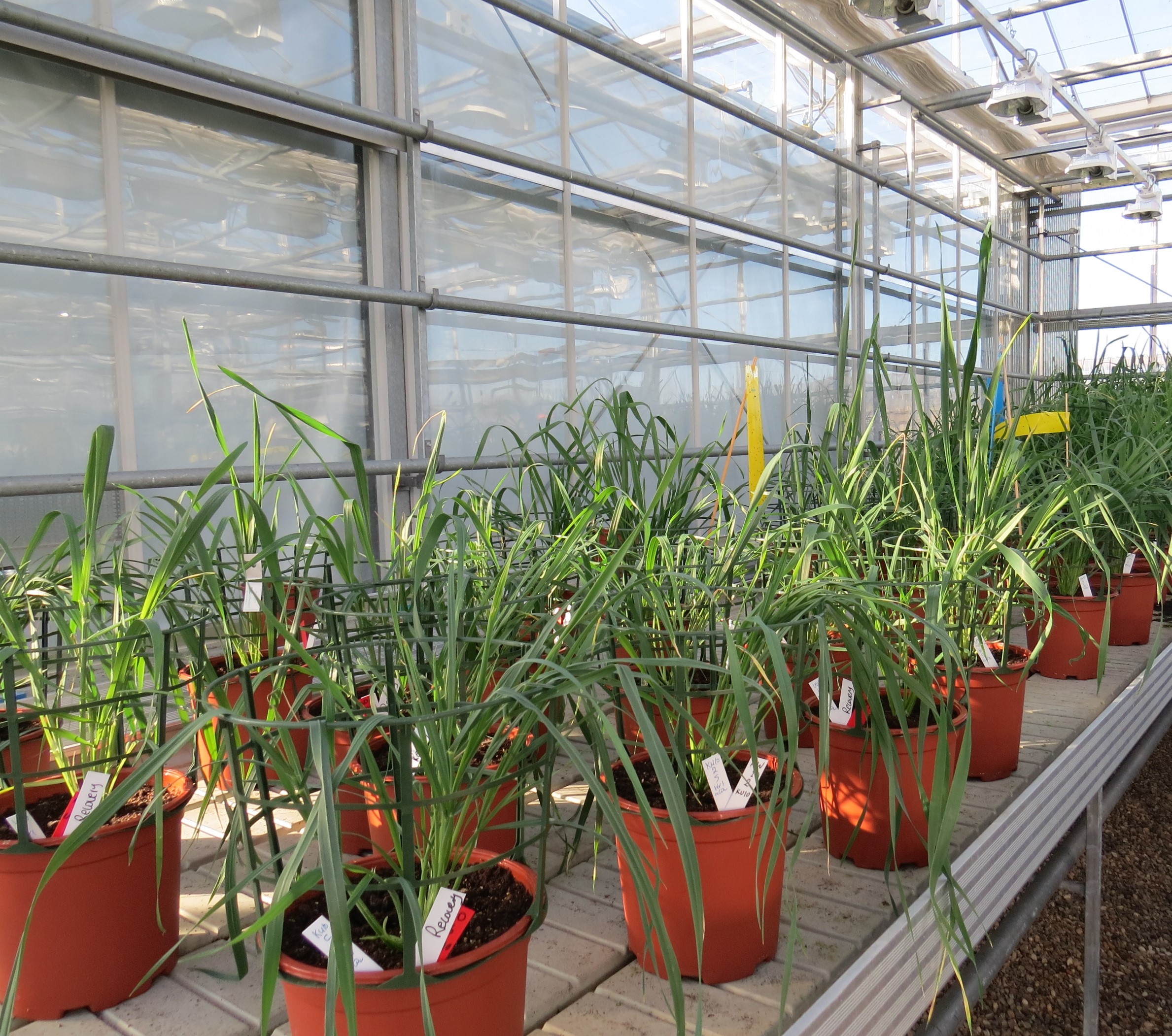Climate resilient wheat: One stress factor seldom comes alone
It is becoming increasingly urgent to find crops that are resilient to climate changes. The phrase climate changes reflect many stress factors, and can e.g. consist of a combination of factors such as increased temperatures, drought and changes in the composition of the atmosphere. But how do crops respond to this type of stress combinations? What happens when wheat, the world's most important crop, is exposed to more than one type of stress? Lamis Abdelhakim from the Department of Food Science, Aarhus University, has investigated this as part of her Ph.D. studies.


![[Translate to English:] [Translate to English:]](/fileadmin/ingen_mappe_valgt/lamis.jpg)
In the study, Lamis Abdelhakim focused on selecting Nordic wheat varieties with different temperature sensitivities. This is relevant, as wheat in the Nordic region, which is both high-yielding and adapted to our climate, is already threatened by climate events. Out of 200 wheat varieties, four were selected and their physiological responses to drought and heat was studied, both one stress factor at a time and drought and heat applied in combination. Lamis Abdelhakim also worked with different CO2 levels which is relevant because the CO2 level in our atmosphere is expected to rise to double the current level when we reach the end of this century.
More stressors - greater impact
The experiment showed that when plants are exposed to both drought and heat stress at the same time, it gives greater negative effects than if the plants are only exposed to one type of stress at a time. So in order to understand wheat's responses to multiple stress events simultaneously, it is important to understand the underlying physiological mechanisms. And to make it even more complicated, increasing CO2 concentration will also affect plant growth.
The study was conducted under controlled conditions at the Department of Food Science at Aarhus University. “By using portable leaf gas exchange system for measuring photosynthesis and transpiration rates of plants and assessing other parameters related to the photosynthetic activity among the different wheat varieties, we could see differences in individual and combined stress, respectively. But the results also showed that increased CO2 can actually reduce the effect of stress on photosynthesis which is important to provide the plants with carbohydrates required for growth and development,” says Lamis Abdelhakim.
Different varieties - different reactions
The experiment showed that the heat-tolerant varieties continued to transpire under stress- in other words, the plants could literally sweat out of the stress. That is why they could keep their leaves cooler, improve the water use efficiency and maintain the same photosynthesis. The more heat-sensitive varieties in the experiment closed the stomatal opening so that the temperature went up and photosynthesis went down.
“These findings showed the importance of studying the underlying mechanisms of different genotypic responses to multiple stress conditions and at high CO2 levels that differ from the response to single stressors. By investigating this, we will be able to select robust wheat genotypes that have the potential to resist and maintain yield under unfavorable conditions in the future,” says Lamis Abdelhakim
Additional information | |
We strive to ensure that all our articles live up to the Danish universities' principles for good research communication(scroll down to find the English version on the web-site). Thus this article is supplemented with the following information: Study type: Research/ experimental study |
